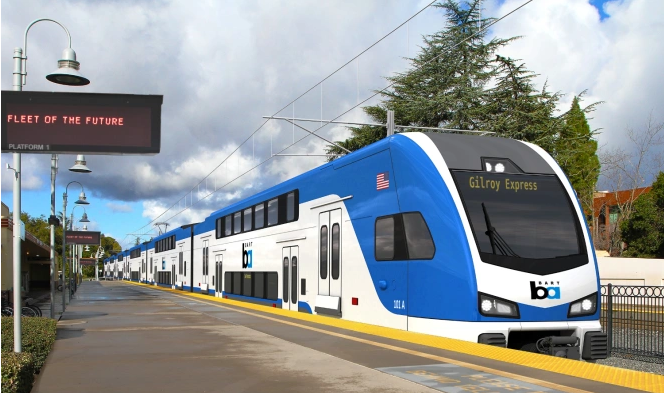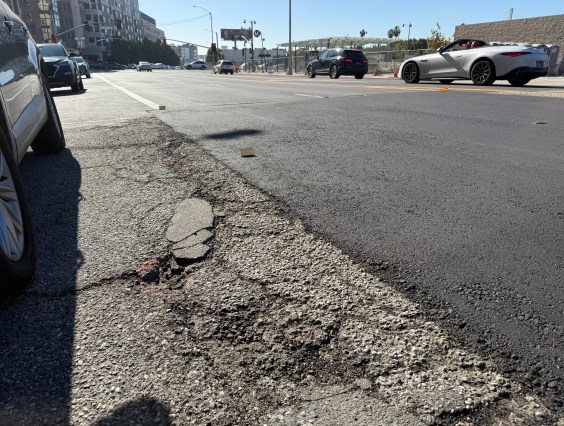Last Thursday, SB 917 (Becker), a bill sponsored by Seamless Bay Area that would have set clear deadlines for integrated transit for the Bay Area’s 27 transit agencies, was unexpectedly halted in the Assembly Appropriations Committee. Frustratingly, the bill was never actually voted on or discussed by the committee, let alone the Assembly. Rather it was ‘held in committee,' a recommendation generally made by the Appropriations Committee Chair and their staff, sometimes in consultation with the Speaker’s office, without any explanation or public debate. The Appropriations Committee is one of the most opaque and undemocratic elements of California’s legislative process. What happened to SB 917 was not isolated -- many other broadly supported bills suffered similar fates.
SB 917 didn’t have any public opposition from advocacy groups, public agencies, or Bay Area legislators. Numerous collaborative meetings were held between transit agencies, Senator Becker’s office, and bill cosponsors, which included SPUR, Transform, Bay Area Council, Silicon Valley Leadership Group, and Joint Venture Silicon Valley. Many amendments to the bill were made to respond to agency concerns, making its deadlines more feasible, removing the perception of unfunded mandates, and protecting transit agencies and riders against potential ‘unintended consequences.' Thanks to the amendments, MTC, BART, and WETA ultimately adopted ‘support’ positions for the bill, and many other transit agencies had indicated in recent weeks that the amendments had addressed their earlier concerns. Just last week, a final set of tweaks to the bill had been agreed to between MTC and transit agencies.
Given the positive direction of good faith discussions, the Committee’s decision to hold the bill came as a surprise. We likely won’t know more information about what led to this determination for a few more weeks. Whoever was involved with this decision chose to ignore the views of the vast majority of Bay Area transit riders who support state legislation to create a seamless transit system in our region - not to mention the hundreds of hours of staff and volunteer effort that went into advocating for, discussing, and negotiating the terms of this bill.
While SB 917 won’t become law, it has already had positive effects. All of the four initiatives it would have created deadlines for that will make transit more seamless in our region - fare integration, wayfinding harmonization, real-time information standards, and a connected network plan - originated with the region’s Transformation Action Plan and continue to be advanced, albeit with delays. SB 917 helped create momentum and political pressure to advance these initiatives quickly, and forced important conversations about how to move them forward in a fragmented context with so many decision-making bodies.
In fact, SB 917 has had a similar impact as Seamless Bay Area’s two prior attempts at state legislation, which created strong momentum for change in the Bay Area, even though they didn’t become law:
- In 2020, Seamless co-sponsored AB 2057 with then Assemblymember David Chiu, which would have created a Blue Ribbon Task Force to develop a plan for an integrated transit system, including the governance reforms needed to coordinate the system. While the Covid-19 pandemic stopped this bill from moving forward, the ideas in the bill were lifted up by the MTC and used in the creation of of the Blue Ribbon Task Force by MTC in May of 2020. The task force had a dual focus on both addressing the immediate impacts of the pandemic on transit and identifying a path to a more integrated and transformed transit system. Chiu and Seamless Bay Area were both invited to be on the Task Force due to AB 2057 and Chiu’s participation in particular played an important role in keeping the Task Force focused on transformative change.
- In 2021, AB 629 (Chiu), like SB 917, set key deadlines for fare integration policies, wayfinding standards, and real time information. The bill was held by the Assembly Appropriations Committee supposedly because the Blue Ribbon Task Force was still in progress - but then the Transformation Action Plan adopted by the BRTF included specific deadlines for each of these initiatives anyway. The active support from a powerful legislature added momentum to the unanimous approval of the Transformation Action Plan.
Like these two prior bills, SB 917 helped demonstrate the popular support and legislative leadership needed to compel transit agencies toward greater cooperation. In the six months since the bill was first announced by Senator Becker, there has been the opportunity for extensive discussions about the merits of integration among transit agency leaders and the exact mechanisms for implementing it. We hear from multiple people around these (mostly virtual) tables that the negotiations process around the bill was highly valuable - it has led to the clearer articulation of the funding needed to support integration. There is now agreement on the exact circumstances under which MTC would be justified in withholding funds from transit agencies if they don’t comply with regional standards.
This is especially important because, even without SB 917, MTC has the authority to withhold funding from transit agencies if they don’t coordinate fares and schedules. In the last several decades, with one exception*, they have refrained from using this leverage, arguably because there wasn’t enough agreement on what ‘fare coordination’ meant. Thanks to the discussions that SB 917 brought about, as well as the region’s adopted fare policy vision, MTC is now much better positioned to justify exercising its existing authority. It would simply be enforcing policies already negotiated through the SB 917 process.
The past three years have clearly proven that legislation is an important tool for getting transit agencies to prioritize important customer needs. It has helped Seamless Bay Area assemble a broad coalition of supportive elected leaders, community groups, and transit riders focused on change - and this is influencing the priorities of our transit institutions. While SB 917 would have certainly been a satisfying ‘win’ -- much of the substance of the bill was moving forward anyway.
To all the allies and volunteers who contributed to SB 917 - we are so grateful for your hard work and want to assure you that it has not been in vain. We are closer than ever to achieving the goal of a seamless transit system - and our rider-based movement is stronger and broader than it has ever been. It’s encouraging that this Monday, just days after SB 917 died, 50,000 students and residents of affordable housing are now benefiting from the region’s first ever multi-agency pass, BayPass, thanks to our advocacy - and free transfers are coming next fall.
Two big legislative lifts still lie ahead of us to truly transform Bay Area transit for the long term - passing a major regional funding measure that can help us significantly increase service and fund integration initiatives and creating a network manager entity for Bay Area transit. AB 2057, AB 629, and now SB 917 have been important stepping stones to future victories in Sacramento, and at some point, at the ballot box. With your support, we know we can succeed within the next couple of years by bringing about the seamless, accountable, rider-first transit system that our region so desperately needs.
*The one occasion on which MTC used authority it was granted in 1996 to withhold funding to implement any kind of fare coordination was to get BART to implement the Clipper Payment system. In 2010, after years of discussion and negotiation, BART had agreed to a timeline for Clipper implementation and phasing out paper tickets, but subsequently BART missed a deadline. MTC issued a warning letter reminding BART that it had the authority to withhold funding if it did not comply; this was enough to get BART to comply and negotiate an updated timeline. All funding was ultimately disbursed to BART once it complied.
***
Ian Griffiths is the Policy Director and Co-Founder of Seamless Bay Area, a non-profit advocating for an integrated, world-class transit system.






